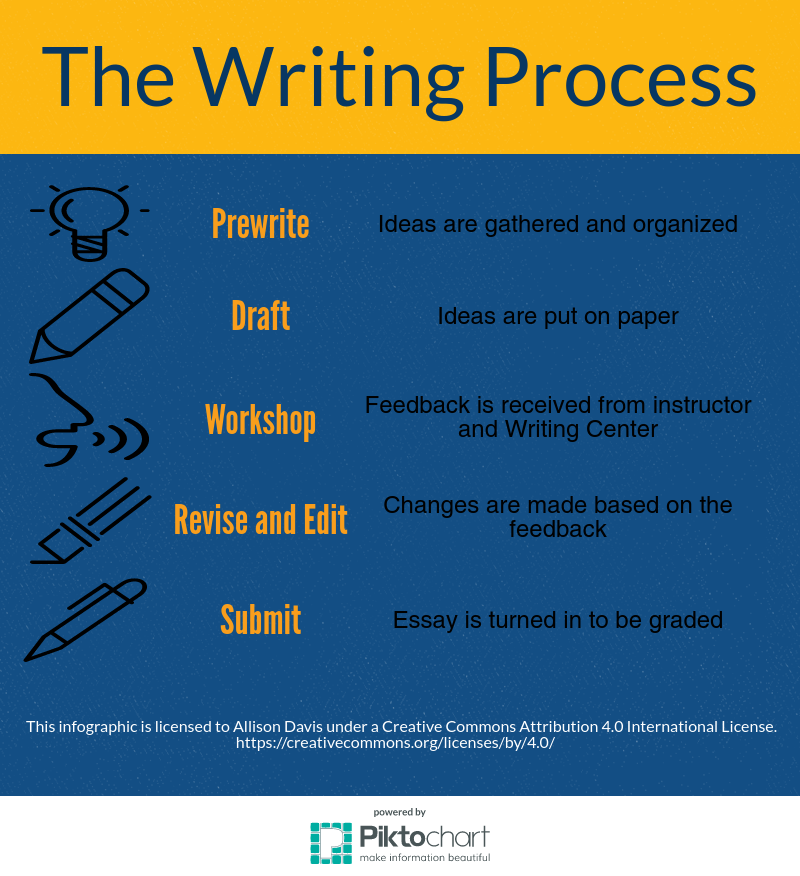Chapter 9: The Writing Process
Introduction to Chapter 9
Many students feel about as comfortable groping their way through the fog as they do writing an essay. They may not be positive what a thesis is, and they may not know where to break their paragraphs. They never know for sure if they have a good paper, and the grade is often a big surprise.
A common misconception among beginning writers is that some people are naturally good writers, while others are not. This myth is frequently accompanied by a chronic case of the “I can’ts”: “I can’t write, I never could write, and I’ll never be able to write! What’s more, I don’t like to write!” Another misconception, sometimes held by writers whose first language is not English, is that all people who grew up speaking English are naturally good at writing. This is not true; even people who have been speaking English all their lives often struggle with writing.
Writing does not have to be akin to a walk in the fog. When equipped with a precise set of guidelines and an understanding of the writing process, anyone can learn to write well. No matter how much you have struggled with writing in the past, you can learn to become a successful writer, both in and out of college, by grasping a few fundamentals. You can be confident that you have written a good essay and should receive a pleasing grade. And once the fog dissipates, you might even discover that you enjoy writing.
Explore the following sections to learn about the components of the writing process.
Check out the image below that lists the stages writers may follow in the writing process.

Licenses and Attributions
CC Licensed Content, Shared Previously:
- Introduction to chapter 9 and section 9.3 were adapted from OpenNow English Composition 1 authored by Cengage Learning, license: Creative Commons Attribution 4.0 International License, and Developmental Writing authored by Elisabeth Ellington and Ronda Dorsey Neugebauer, provided by: Chadron State College. Project: Kaleidoscope Open Course Initiative, license: CC BY: Attribution
- Section 9.1 was adapted from About Writing: A Guide by Robin Jeffrey, license: Creative Commons Attribution 4.0 International License,
- Section 9.2 was adapted from Developmental Writing authored by Elisabeth Ellington and Ronda Dorsey Neugebauer, provided by: Chadron State College. Project: Kaleidoscope Open Course Initiative, license: CC BY: Attribution
- Sections 9.4 and 9.5 were adapted from English Composition, license: Creative Commons Attribution 4.0 International License,
Video Content (linked)
- “Four Steps to Pre-Writing: How To Brainstorm” authored by Business English. Provided by Business English HQ. License: All Rights Reserved. License Terms: Standard YouTube license
- “How to Use Mind Mapping for Studying and Research” authored by CTLT Resources. Provided by UBC Learning Commons. Project: Three Minute Tutorials. License: All Rights Reserved. License Terms: Standard YouTube License
- “Freewriting” authored by pattheprofessor. License: All Rights Reserved. License Terms: Standard YouTube License
- “Proofreading” authored by FCCTutors. License: All Rights Reserved. License Terms: Standard YouTube License
